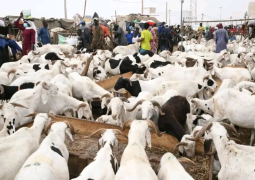On 24th October 2023, two buses were arranged to facilitate the return of one hundred (100) stranded Gambian migrants from Dakar, who had been intercepted at sea by authorities in Senegal.
Furthermore, on 2nd November, 2023 we anticipate the safe return of one hundred and sixty-five (165) Gambian migrants from Libya through an operation to be conducted by the International Organisation for Migration (IOM). Subsequently, on 7th November and 14th November, another one hundred and ten (110) migrants each will be evacuated from Niger, again with the support of IOM.
In addition, we are actively collaborating with IOM to issue Emergency Travel Certificates (ETC) to over two hundred (200) stranded migrants in Algeria, preparing for their evacuation. We kindly request understanding from all parties involved, given the resource requirements and procedural intricacies inherent in these efforts.
We would like to emphasise that embarking on such journeys carries significant risks. Regrettably, some stranded migrants who are currently in Algeria and Niger particularly during the Tunisian crisis were offered evacuation opportunities twice but declined at the eleventh hour, despite having been granted ETCs and exit visas.
It is important to note that the challenges we face are not unique to only Gambian migrants, as many other nationals are yet to be evacuated. Evacuations are coordinated by IOM, following established protocols and procedures, which can at times necessitate a patient approach and understanding of the process.
The Ministry, in close collaboration with stakeholders and partners, is actively engaged with IOM offices in Banjul and other relevant jurisdictions to expedite the evacuation of stranded Gambian migrants.
However, it is essential to recognize that, even as we work towards planned evacuations, more individuals are leaving or considering it, influenced by the current events and media coverage. Reports confirm series of interceptions of Gambian migrant boats in international waters.
It is imperative that our youth understand that European countries have externalised their border control measures to North Africa and the Sahel nations to deter irregular migration by land or sea.
In light of these ongoing challenges, we call for an urgent national dialogue involving all stakeholders. The current situation demands a collective effort to address the complexities of irregular migration effectively and ensure the safety and well-being of our citizens.




